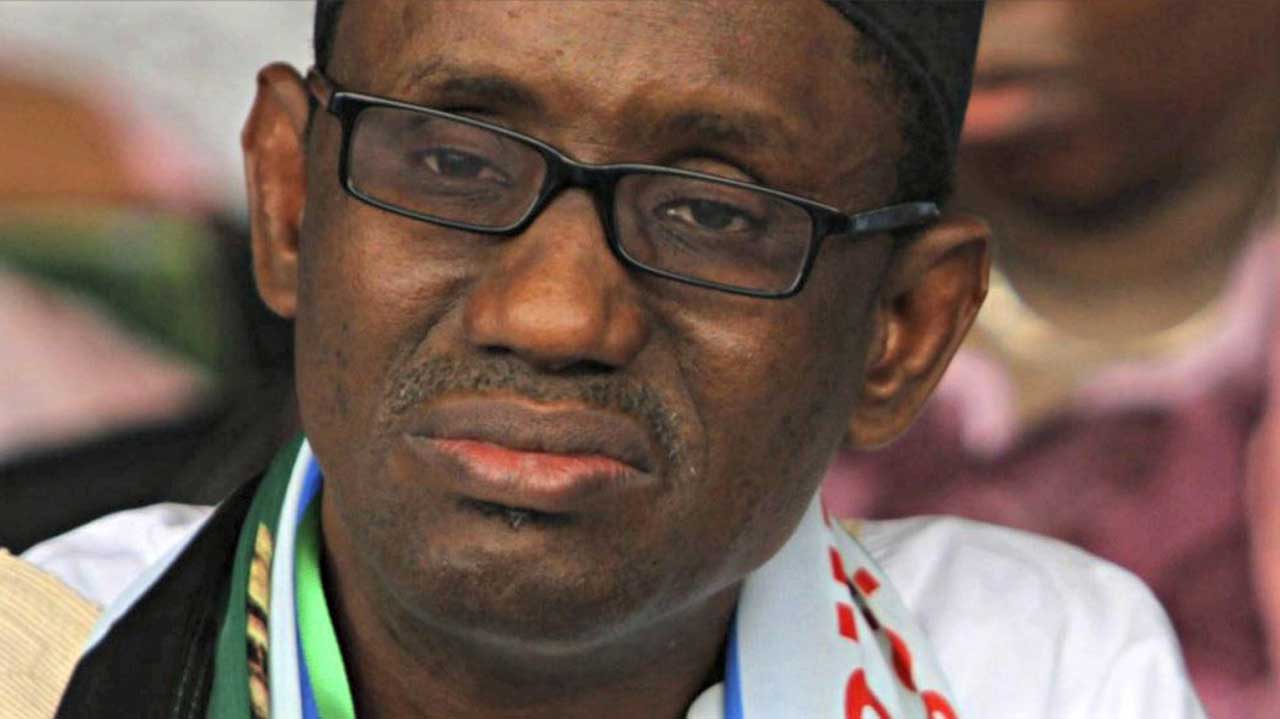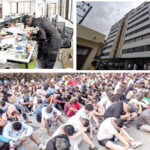First, I commend the EFCC, which I have taken to task recently, for some motion if not movement: it has now made its Establishment Act available again on its website.
The question is whether it will move to substance. Will it move from appearing to operate as a tool of the powerful into serving as a purveyor of justice?
- PODCAST: A Deeper Look At How Some Nigerian Elites ‘Siphon’, Hide Loots
- Thousands march against cancer in Abuja
And if it claims to be doing its job, will it now make available to public scrutiny every annual report since it was established? I reaffirm that nothing provides for the agency to submit secret reports and fight to the death to keep them secret.
And there is no other way for Nigerians, the international community, and posterity to tell that EFCC does not stand for the Economic and Financial Crimes Corruption.
In relation to the EFCC, its pioneer chairman, Mr Nuhu Ribadu, appeared on television last week to deny reports that he once accused General Muhammadu Buhari of creating the menace of bandits in Nigeria.
Denouncing the practice of fake news, he said he first heard the allegation against him in July 2019, to which he immediately responded with a strong denial on Twitter. He waved physical copies of that denial and another he issued subsequently, expressing regret that the reports continued.
The most recent reappeared three weeks ago on a website called Naija247News, from which Opera News appeared to have copied it the same day.
Nonetheless, he expressed consternation—one that I fully share—that the formal media curiously fails to fact-check such claims when they appear. Warning that fake news is dangerous for today’s victims as well as victims to come, he advised: “Good media will fight bad media.”
The former EFCC boss also called on social media companies and the Nigeria government to act against the menace. I share in Ribadu’s pain, but not his second recommendation.
It is clear to the entire world now that the Buhari government intends to muzzle social media not to control bogus news, but to muzzle freedom of expression. It is not here to serve or to solve problems.
Only last week, for instance, it announced plans to shut down Internally Displaced Persons (IDPs) camps in the country, a necessity arising from the Boko Haram insurgency and the farmer/herder clashes. These camps welcomed displaced Nigerians who lost hundreds of thousands of relatives, and sometimes, limbs, farms, homes, villages and communities.
Life as they knew it no longer exists. The security they enjoyed, even in deep poverty, no longer exists. They were forced to depend on the government and humanitarian agencies for their survival amidst exploitative officials.
But no longer, the government now says: the camps will be shut down and these people must fend for themselves.
“Initially, we didn’t expect them to stay till now,” she said following a meeting of yet another IDP government panel in Abuja, accusing the victims of having “overstayed” their welcome as if chosen by themselves to live in these camps.
In a classic case of putting the cart ahead of the horse, and despite the continuing carnage of the militancy, bandits, sundry criminals, and the pandemic, Sulaiman-Ibrahim declared that the government could not continue to look after the IDPs.
“We have to provide them with an environment and platforms to key in and become contributing members to nation-building,” she said.
Read that again. They are announcing plans to shut down the camps before providing the requisite “environment and platforms” that might justify the policy.
In Nigeria, the poor always emerge as a nuisance, but the displacement problem in Nigeria’s northeast is immense. The United Nations describes it as being “among the world’s worst,” as it involves nearly two million people, some of them living in terrible conditions.
“Since 2016, humanitarian organisations have been working in support of the Government of Nigeria to robustly scale up the response,” a report says. “In 2019 alone, more than 5.2 million people received humanitarian assistance in Borno, Adamawa and Yobe states.”
But these are the people whose camps Buhari’s government now wants to shut down, for no better reason than their destitution and poverty. They are the same easy-to-exploit people who, when the Kingdom of Saudi Arabia sent a gift of 200 tonnes of dates for Ramadan four years ago, government officials robbed, shamelessly selling it in local markets. The Ministry of Foreign Affairs is still “investigating.”
And despite Nigeria being consistently unable to fund its budgets since Buhari took office, last week he proposed a hefty N16.39tn ($39.8 billion) for 2022 he again hopes to fund through loans. Five months ago, the World Bank warned that the Nigerian economy was the worst in Africa, citing food inflation, heightened insecurity and stalled reforms.
Nigeria is already the world’s poverty capital, but the bank warned that the pandemic would push another 11 million more Nigerians into poverty by 2022, to bring our nation’s poor to over 100 million.
And yet, Buhari, who resents his medical care anywhere in Africa, wants N21.9bn for the “construction of a presidential wing at the State House Medical Centre.” Analysts point out that this provision sadly outstrips the proposals for all new and ongoing projects in the nation’s 14 federal teaching hospitals combined.
In other words, as we push our IDPs into the unknown, Buhari would be building a presidential wing in a presidential medical facility.
Similarly, he wants N12.5bn for the Presidential Air Fleet in 2022, with another N2,859bn on travel. Buhari also proposes to spend billions more on the presidential palates.
But Ribadu raises a good point, Ribadu: what to do about social media misuse in a period in which there is a government only in form.
I return the answer to Ribadu. As this government cannot be trusted not to turn such an opportunity into another self-serving witch hunt, I urge you sir, to use your experience and abilities to launch the search for an answer.
How about setting up a Fake News Nigeria (FNN) civil society Swiss army knife: an organisation to which people can refer fake reports and receive immediate assistance, including authoritative liaison with the authorities, responsible media, and the social media companies, towards identifying and castrating the perpetrators?
(This column welcomes rebuttals from interested government officials).
- [email protected]
- @Sonala.Olumhense

 Join Daily Trust WhatsApp Community For Quick Access To News and Happenings Around You.
Join Daily Trust WhatsApp Community For Quick Access To News and Happenings Around You.

